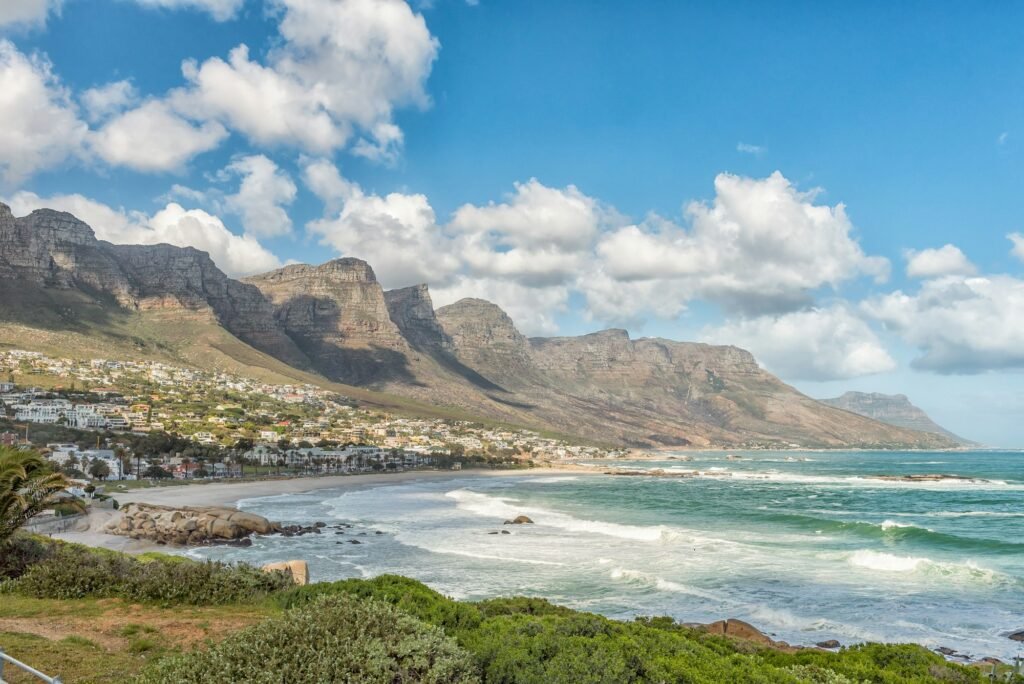Top Attractions and Must-See Places
Cape Town, a city renowned for its stunning landscapes and rich history, offers a plethora of attractions that cater to all types of travelers. One of the most iconic landmarks is Table Mountain. Ascending this majestic flat-topped mountain, either by hiking or via the cableway, provides panoramic views of the city and Atlantic Ocean. The best time to visit is early morning or late afternoon to avoid the crowds and enjoy the serene beauty of the sunrise or sunset. Make sure to check the weather conditions beforehand, as the cableway operation is weather-dependent.
Robben Island, a UNESCO World Heritage Site, is another must-see. Known for its infamous prison that once held Nelson Mandela, the island offers poignant historical tours. Ferries to Robben Island depart from the V&A Waterfront, and it’s advisable to book tickets in advance. The guided tours offer deep insights into South Africa’s struggle for freedom and equality.
The V&A Waterfront itself is a bustling hub of activity. With a myriad of dining, shopping, and entertainment options, it’s a perfect spot to spend an afternoon or evening. Highlights include the Two Oceans Aquarium and the Zeitz Museum of Contemporary Art Africa. Visiting during the evening allows travelers to enjoy the lively atmosphere and stunning waterfront views.
Nature enthusiasts should not miss the Kirstenbosch National Botanical Garden. Nestled at the foot of Table Mountain, it showcases a vast array of indigenous plants. The garden is a year-round attraction, with the summer months (December to February) offering outdoor concerts and picnics. A walk along the Tree Canopy Walkway, known as the “Boomslang,” provides a unique perspective of the garden and its surroundings.
The historic district of Bo-Kaap, with its vibrant, colorful houses and cobblestone streets, is a testament to Cape Town’s diverse cultural heritage. Visitors can explore the Bo-Kaap Museum to learn about the area’s history and enjoy traditional Cape Malay cuisine at local eateries. Walking tours are highly recommended to fully appreciate the cultural richness and architectural beauty.
Lastly, no visit to Cape Town is complete without a trip to Cape Point. Located within the Cape of Good Hope Nature Reserve, this scenic spot offers breathtaking views of the rugged coastline and the confluence of the Atlantic and Indian Oceans. Early morning or late afternoon visits are ideal to witness the dramatic landscapes in softer light. Hiking trails and the Cape Point funicular make exploring the area both exciting and accessible.
Activities and Experiences: What to Do in Cape Town

Cape Town, a city renowned for its diverse attractions, presents an array of activities that cater to various interests and preferences. Adventure enthusiasts can embark on a hike up Lion’s Head, an experience that offers panoramic views of the city and a moderate challenge for hikers. The trail is accessible to most, taking approximately 2 to 3 hours for a round trip. Early morning or late afternoon hikes are recommended to avoid the midday heat, with no cost involved beyond transport to the trailhead.
For those who prefer to explore by car, a scenic drive along Chapman’s Peak is a must. Known for its breathtaking coastal views and dramatic cliffs, this drive stretches from Hout Bay to Noordhoek. A small toll fee is charged for the route, but the experience is well worth it, particularly if you stop at one of the many viewpoints along the way for photos or a picnic.
Immersing yourself in local culture is also essential when visiting Cape Town. The city boasts vibrant markets such as the Neighbourgoods Market in Woodstock and the Bay Harbour Market in Hout Bay. These markets offer a rich tapestry of local crafts, foods, and live entertainment. Entry to these markets is free, but it is advisable to carry cash for purchases.
For thrill-seekers, Cape Town offers the unique experience of cage diving with great white sharks. Operators like Marine Dynamics and White Shark Ventures provide comprehensive packages that include transportation, equipment, and expert guides. Prices typically range from $150 to $200 per person. Booking in advance is recommended, especially during peak tourist seasons.
Wine enthusiasts should not miss a visit to the nearby Stellenbosch wine region. Renowned for its world-class vineyards, Stellenbosch offers numerous wine-tasting tours. Many estates provide guided tours and tastings, with costs varying from $5 to $20 per tasting. Hiring a local tour company can enhance the experience by providing transportation and expert knowledge.
Finally, a sunset cruise along the Atlantic Seaboard provides a tranquil yet unforgettable experience. Various operators offer cruises departing from the V&A Waterfront, with options ranging from luxury yachts to more casual sailing experiences. Prices typically start at around $30 per person, and it’s advisable to book in advance to secure a spot during the popular sunset times.
Dining in Cape Town: Where to Eat
Cape Town’s culinary scene is a testament to its rich cultural tapestry, offering an array of dining experiences that cater to diverse palates. Whether you’re seeking gourmet indulgence or a quick bite from a street vendor, the city has something to satisfy every craving. Among the top-tier establishments, The Test Kitchen stands out with its avant-garde approach to South African cuisine, consistently ranking among the world’s best restaurants. Similarly, La Colombe offers a fine dining experience set in the tranquil Constantia Winelands, renowned for its innovative dishes and impeccable service.
For those looking to immerse themselves in local flavors, Mama Africa on Long Street is a must-visit. This vibrant spot not only serves traditional South African dishes but also provides a lively atmosphere with live music performances. Another gem is The Codfather in Camps Bay, where the focus is on fresh seafood. Diners can select their fish and shellfish directly from the display, ensuring a meal that’s both personalized and fresh.
Cape Town’s food markets are also worth exploring for a taste of the local street food. The Neighbourgoods Market at the Old Biscuit Mill in Woodstock is a bustling hub on Saturdays, offering everything from artisanal cheeses to gourmet burgers. Similarly, the Oranjezicht City Farm Market is perfect for fresh produce, homemade goods, and delightful breakfast options.
For budget-friendly dining, Lekka Kombuis in Bo-Kaap offers affordable, hearty Cape Malay cuisine, while the Eastern Food Bazaar in the city center provides a variety of international dishes at reasonable prices. And if you’re in the mood for international flavors, Kloof Street is lined with eateries offering everything from Italian to Asian fusion.
Overall, Cape Town’s dining options reflect its multicultural heritage and innovative spirit, making it a culinary destination that promises to delight every type of traveler.
Travel Tips: What Not to Do in Cape Town
Cape Town, with its stunning landscapes and vibrant culture, is a must-visit destination. However, like any major city, it comes with its own set of challenges that travelers should be aware of. Here are some essential tips on what not to do in Cape Town to ensure a safe and enjoyable experience.
Avoid Certain Areas After Dark
While Cape Town is generally safe, there are certain areas best avoided after dark. Neighborhoods such as Cape Flats and certain parts of the city center can be risky at night. Stick to well-lit, populated areas and always be aware of your surroundings. Consulting locals or your accommodation staff can provide valuable insights on which areas to avoid.
Be Cautious with Public Transportation
Public transportation in Cape Town, including buses and trains, can be unreliable and sometimes unsafe, especially at night. Opt for reputable taxi services or rideshare options like Uber, which offer safer alternatives. If you do use public transport, avoid traveling alone and keep your belongings secure.
Stay Alert for Common Tourist Scams
Tourists in Cape Town may be targeted by scams such as fake tour guides or overcharging. Always verify the credentials of any guide or service you use, and agree on prices upfront. Be cautious with unsolicited offers and avoid displaying valuable items that might attract unwanted attention.
Respect Local Customs and Etiquette
Understanding and respecting local customs is crucial. South Africans are generally friendly and hospitable, but it’s essential to be mindful of cultural nuances. Dress modestly when visiting religious or cultural sites, and always ask for permission before taking photos of people.
Environmental Considerations
Cape Town is renowned for its natural beauty, and preserving it is a shared responsibility. Water conservation is a significant concern, so be mindful of your water usage. Respect wildlife and natural habitats by not littering and following all posted guidelines in national parks and reserves.
By following these practical tips, travelers can ensure a safe, respectful, and enjoyable trip to Cape Town, making the most of everything this incredible city has to offer.


